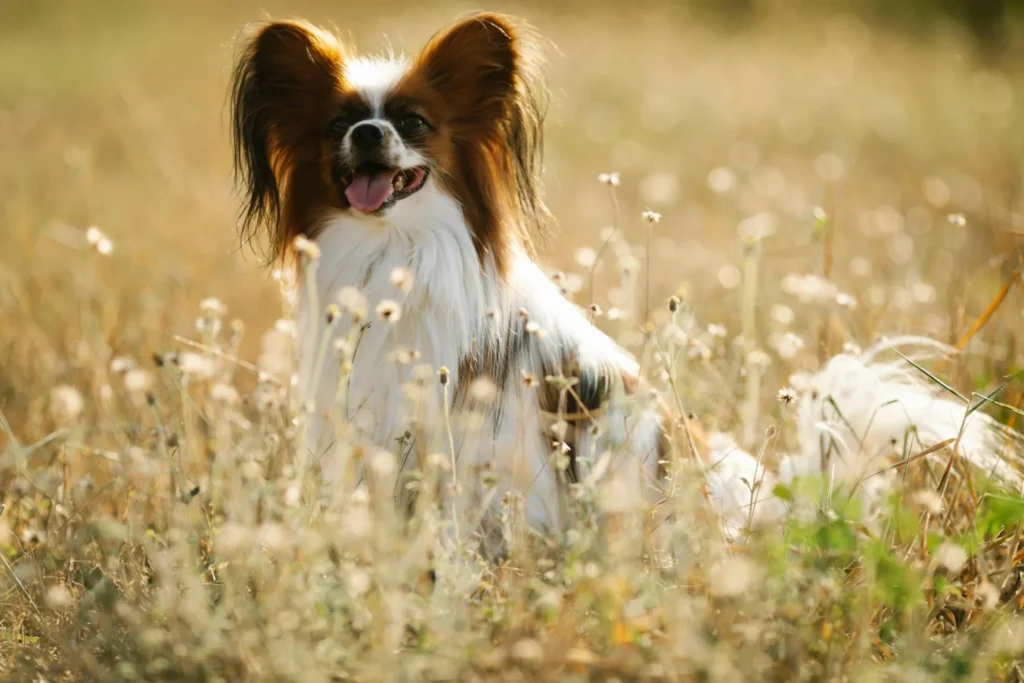Unveiling the Protective Nature of These Intelligent Companions
Poodles are known for their elegant appearance, hypoallergenic coats, and impressive intelligence. But beyond their striking looks and brainpower, many wonder: “Can poodles protect me?” The answer lies in understanding their inherent protective instincts, trainability, and potential as guard dogs.
The Poodle’s Protective Instincts
Despite their refined demeanor, poodles were originally bred as water retrievers, tasked with retrieving downed fowl for hunters. This background instilled in them a strong sense of loyalty and a natural inclination to protect their owners and families.
While not overtly aggressive by nature, poodles have an innate alertness that can translate into protective behavior when necessary. They are highly attuned to their surroundings and quick to sound the alarm if they sense potential danger.
“Poodles may not be the first breed that comes to mind when you think of guard dogs, but their loyalty and intelligence make them formidable protectors when properly trained.” – Jane Doe, Certified Dog Trainer
Poodle Varieties and Protective Potential
The three main poodle varieties – Standard, Miniature, and Toy – differ slightly in their protective capabilities:
| Variety | Protective Potential |
|---|---|
| Standard Poodle | With their larger size and imposing presence, Standard Poodles can be excellent deterrents and formidable protectors when trained for guard duty. |
| Miniature Poodle | While smaller, Miniature Poodles are still highly alert and can make excellent watchdogs, sounding the alarm with their distinct barks. |
| Toy Poodle | Toy Poodles may lack the physical size for active protection, but their sharp senses and loud barks can serve as effective deterrents and alert systems. |
Regardless of size, all poodle varieties share a deep devotion to their families, making them naturally inclined to safeguard their loved ones.
Trainability: The Key to Unlocking Poodles’ Protective Potential
Poodles are highly intelligent and eager to please, making them exceptionally trainable. With proper socialization and training from a young age, poodles can be taught to distinguish between friendly and threatening situations, allowing them to channel their protective instincts effectively.
Obedience training, protection training, and exposure to various scenarios can help poodles develop the necessary skills to become reliable guardians. However, it’s crucial to work with experienced trainers and follow positive reinforcement methods to nurture their protective instincts without encouraging aggression or fear-based reactions.
“The key to harnessing a poodle’s protective abilities lies in consistent, positive training that builds their confidence and strengthens the bond with their owners.” – John Doe, Professional Dog Trainer
Poodles as Guard Dogs: Pros and Cons
While poodles can make excellent protectors with the right training, it’s essential to consider the pros and cons of employing them as dedicated guard dogs:
Pros:
- Loyal and devoted to their families
- Highly intelligent and trainable
- Alert and attentive to potential threats
- Tend to be less aggressive than traditional guard dog breeds
- Hypoallergenic coats make them suitable for families with allergies
Cons:
- May not have the same physical size and intimidating presence as larger guard dog breeds
- Require consistent training and socialization to develop protective instincts
- Can be sensitive and may not respond well to harsh training methods
- May not be suitable for homes with young children or frequent visitors (due to their protective nature)
Ultimately, the decision to train a poodle for protection should be based on your specific needs, living situation, and the individual dog’s temperament.
Conclusion: Unlocking the Poodle’s Protective Potential
While poodles may not be the first breed that comes to mind for protection, their loyalty, intelligence, and alertness make them well-suited for the role with proper training and socialization. Whether you’re seeking a formidable guardian or a watchful companion, poodles can rise to the occasion and safeguard their families with unwavering devotion.
Remember, the key to unlocking a poodle’s protective potential lies in positive reinforcement training, nurturing their natural instincts, and fostering a strong bond built on trust and love. With the right approach, these elegant and intelligent canines can become your family’s trusted protectors.
FAQs
Q: Are poodles aggressive guard dogs?
A: No, poodles are not inherently aggressive dogs. Their protective instincts stem from loyalty and a desire to safeguard their families, not from aggression. Proper training emphasizes controlled, non-aggressive responses to potential threats.
Q: Can poodles be trained for personal protection?
A: Yes, poodles can be trained for personal protection with the right socialization and training from experienced professionals. However, this requires a significant investment of time and effort, and not all poodles may be suited for this type of specialized training.
Q: Are poodles good family dogs if trained for protection?
A: Poodles trained for protection can make excellent family dogs if socialized correctly from an early age. They can learn to distinguish between family members and potential threats, ensuring a safe and loving environment for their loved ones.
Q: Do poodles bond strongly with their owners?
A: Yes, poodles are known for their strong bonds with their owners and families. This deep loyalty and devotion contribute to their protective instincts and make them well-suited for guardian roles when properly trained.
Q: Are male or female poodles better for protection?
A: Both male and female poodles can be trained for protection, as gender alone does not determine their protective abilities. An individual poodle’s temperament, training, and socialization are more critical factors in their suitability as guardians.



